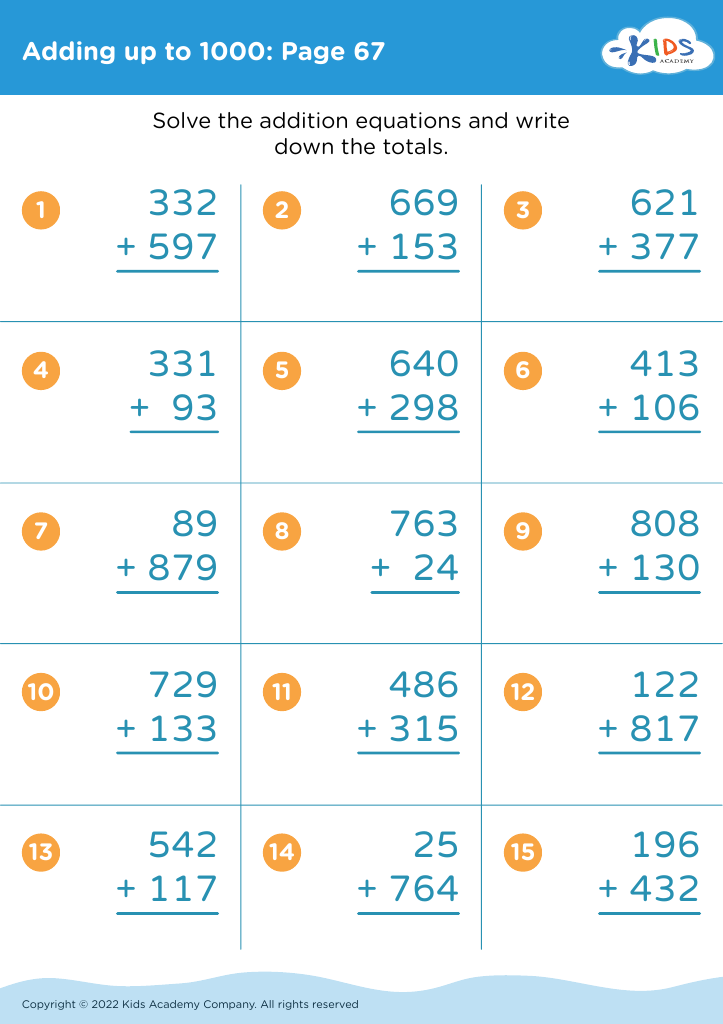Understanding multiplication Adding up to 1000 Worksheets for Ages 4-8
4 filtered results
-
From - To
Welcome to our "Understanding Multiplication Adding up to 1000" worksheets designed specifically for children ages 4-8! These engaging and interactive resources help young learners grasp the fundamentals of multiplication through fun activities that reinforce critical math skills. Our worksheets provide a variety of exercises, including visual aids and relatable examples that align multiplication with real-life scenarios. As kids practice, they build confidence and a solid foundation in mathematical reasoning. Perfect for classroom settings or at-home learning, these worksheets are a valuable tool for parents and educators aiming to foster a love for math in young minds. Start exploring today!
Understanding multiplication and the ability to add up to 1000 are foundational skills that significantly enhance a child's mathematical development, especially for ages 4-8. Early grasp of these concepts fosters critical thinking, problem-solving abilities, and number sense. When children understand multiplication, they learn to recognize patterns and relationships between numbers, which deepens their comprehension of mathematics as a whole.
At this age, students are transitioning from counting to more sophisticated operations. Multiplication introduces them to the concept of repeated addition, making larger numbers more manageable and accessible. This progression is essential as it prepares them for more complex mathematical concepts later on.
Moreover, achieving fluency in addition up to 1000 promotes confidence and a sense of accomplishment. Encouraging parents and teachers to engage with these skills creates a supportive learning environment that not only helps children build competence but also improves their interest in math. Ultimately, developing these skills lays a robust groundwork for future academic success, as mathematics is a cornerstone for subjects ranging from science to finance. Supporting children during these formative years ensures they feel empowered in their abilities, setting up positive attitudes toward learning and perseverance in the face of challenges.















